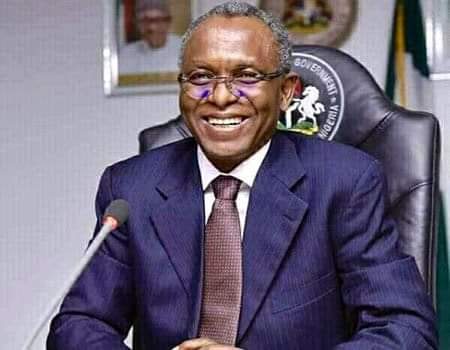By YUSUF ISHAKU GOJE
The urgency to combat the spread and socio-economic impact of covid-19 has continued to push the Kaduna state government into taking rapid and decisive measures. To meet up with these emergencies, some bureaucratic due processes and procedures have to be suspended. This is in order to ensure flexibility and speed in budget reallocations and public procurement with wider effect on the Public Financial Management (PFM) system. It is certain that, even with the reality of dwindling FAAC and Internally generated revenue (IGR), the State government will surely carry-out budget reprioritization which will need further adjustments in the Medium Term Expenditure Framework (MTEF, 2020-2022).
This raises concerns on the preparedness of the State’s fiscal transparency instruments to effectively account for public finance adjustments. Furthermore, due to the demand for rapid decision-making, the tendency is high that the government might not have enough time to carry-out effective citizen’s engagement using the traditional approach. This is evident as the government has already developed a Governance Continuity Plan (GCP), with little or no citizen’s engagement. The Plan is to be driven via e-governance in running the day-to-day activities of government. For instance, aside the regular virtual meetings held by the Covid-19 Task Force and Executive Council; commendably, the Ministry of Agriculture has held three consecutive virtual meeting via teleconferencing with stakeholders (including civil society) in the sector.
However, in all of these, including the fact that the state is practicing Open Government Partnership (OGP), the government is yet to make public a clear-cut framework for citizen’s engagement in the governance process especially in this unusual time of emergency. This is coupled with the earlier question raised of the level of preparedness in terms of ensuring that fiscal transparency and accountability mechanism are put in place? The answer to this question is critical, because without such mechanism on ground it might enable funds mismanagement, diversion and low quality of service delivery.
On the other hand, the civil society organizations/actors who are supposed to effectively engage in this regard, have been slow in adapting to the new realities of rapid governance processes as a result of covid-19. Our activities have largely been limited to raising awareness on the preventive measures against the virus and tracking the distribution of relief materials to vulnerable groups by the government. As a result, the slow pace of engagements by civil society has left a big vacuum in terms of tracking the PFM system and demanding for fiscal transparency and accountability.
The ball is now in the court of the civil society actors/organizations to leverage on collaboration, innovation, technology and the OGP to demand for expanded safe spaces for citizen’s participation in decision making, and demand for fiscal transparency and accountability. Now that we are hearing from the grapevine that the State 2020 approved budget is being reviewed, many critical questions should be asked by the civil society in Kaduna.
Has the co-creation principles of the OGP been jettison (especially commitment one in the State Action Plan (SAP), which seeks to ensure more effective citizen’s participation in the entire budget circle)? Are the online spaces/platforms created by the government enabling citizen’s timely access to usable information and feedback to inform and influence the process of 2020 budget reprioritization? What are the modalities put in place to ensure transparent and prudent utilization of Covid-19 donations in the State?
Furthermore, what modalities are on ground to ensure that the Supreme Audit Institution (SAI) in the state is abreast of modifications done to the PFM system in order to identify potential risk areas? Is the government adhering to the Open Contracting Data Standard (OCDS) in public procurement (by posting all procurement information related to covid-19 on government portals)? How is the Kaduna State House of Assembly carrying out its oversight function in ensuring the ongoing budget review process is inclusive and there is value for money in the implementation?
Understandably, PFM systems should be flexible and responsive in usually times like this; however, effective citizen’s engagement is critical in ensuring value for money, minimizing fraud and corruption. Suffice it to say that in the face of the threats by covid-19, evidence from all over the world show that governments that have proactively and innovatively engaged citizens by being transparent and accountable have fared better in handling the crisis. Going forward, we are optimistic that in the spirit of OGP and in line with the consistent proclamation by the government of running inclusive governance, there will be wider and more robust citizen’s engagement enabled by fiscal transparency and accountability.
Goje is the Head – Leadership, Governance & Advocacy of the Coalition of Associations for Leadership, Peace, Empowerment & Development (CALPED)






